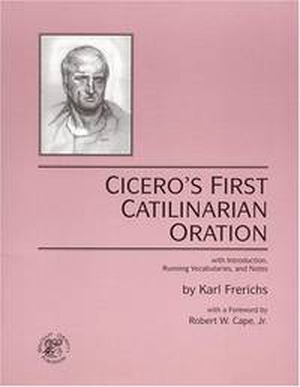
LATN 321-421
Type: 300 - 400 level
Units: 3.00 (each)
Term: Fall 2023
Instructor: Dr. D'Elia
Delivery: In-Person
Cicero and Seneca’s philosophical works were essential reading until the 19th c. Stoic ideas about virtue, happiness, suffering, fate, and self-sufficiency both rivaled and contributed to early Christian thought. In this course, we will read a small selection of Cicero and Seneca’s most famous writings on virtue, happiness, and how to live; and on violent spectacles, entertainment, and the Roman games. What is the good life? How can we deal with pain, suffering, and our self-tormenting minds? How can gladiators or any kind of slave be models of virtue? Can watching violent spectacles really make us better people? How does Cicero react to the spectacle of dying animals before a roaring crowd? What did the Romans consider entertainment?
Students will be provided with a PDF of Latin readings from the works of Cicero and Seneca on a variety of themes. Other readings may also be provided if students are interested in additional themes, such as female gladiators, naumachiae, or early Christian arena martyrs. In the first class we will read some Cicero and decide as a group what we want to focus on.
Learning Outcomes: After this course, students will be able to: read the life-changing precepts and observations of Cicero and Seneca in their original eloquent Latin without consulting an English translation; explain why the Romans valued violent spectacles and why the greatest ancient philosophers used a gladiator’s approach to killing and dying as a model for living; and, most importantly, understand Stoic ideas and use them to improve their own lives.
Please Note: This course is co-taught with LATN 830: Philosophy.